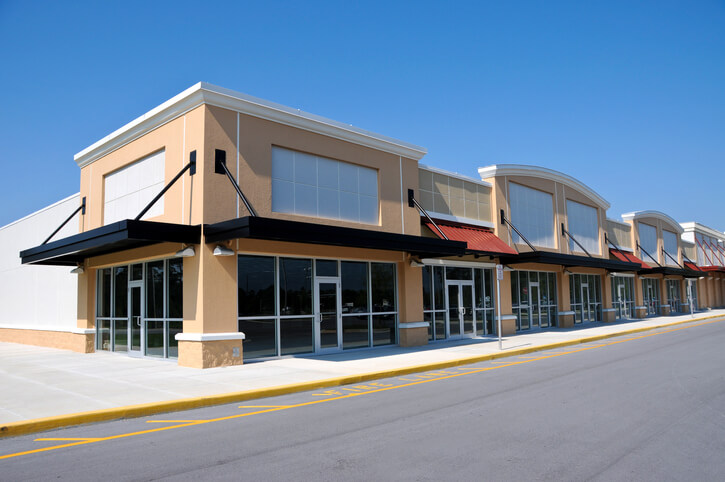Tesla Coming to Westbury: Strip Mall Owners Get Creative With New Kinds of Tenants
Big-box retailers in general were a commercial property landlord’s best friend. For a long time, they took big spaces, had great credit, were reliable and could benefit other tenants by acting as anchors. A string of big-box bankruptcies, however, has rewritten the real estate rule book. After Toys “R” Us, which owned Babies “R” Us, went bankrupt, for instance, that left a big question mark over a space at the Roosevelt Raceway Center, at 1350 Corporate Dr., in Westbury.
The answer is turning out to be Tesla, which has chosen the 50,000-square-foot space for car sales and service as well as solar panels and home-energy storage. A lease has been signed as Tesla gets ready to roll in.
“It’s a large box,” Michael X. (for Xavier) Mattone, CEO of Mattone Investors, the strip mall’s owner, said. “We’ve had to get creative.”

Long Island, a land of strip malls and outlets, for a long time had a retail landscape held together by big-box stores. But now real estate firms like Mattone are finding that backfilling big-box spaces is part of the business and the new look of Long Island retail.
“The smaller retail locations, 3,000-5,000 footers, that’s a pretty decent market,” Mattone said, adding that his company portfolio is about 97% occupied. “It’s the large-box retail where the number of users dried up.”
Mattone Investors owns more than 2 million square feet of commercial property, predominantly in the New York metro area with a large portion in Long Island, Brooklyn and Queens.
That includes Roosevelt Raceway Center, spanning 48 acres and nearly 430,000 square feet of space.
Mattone Investors is turning to a wide range of tenants, medical facilities, and schools, as part of the new mix in New York City as well as on Long Island, as retail gets a makeover.
“We’ve had to consolidate spaces, chop up spaces,” Mattone said. “Back in the day when we bought Roosevelt Raceway Center in 2008, it looked very different.”
The strip mall, which at the time housed Home Depot and Home Depot Expo, has changed, although the Atlanta-based Home Depot remains, along with Applebee’s, T-Mobile, AMC Theaters, and Chili’s.
“They have a unique space,” Mattone said of Home Depot and Lowe’s. “You’re not buying sheet rock from Amazon or two-by-fours online. They have a unique space in the market.”
A Fairway has been replaced by a Food Bazaar in the Raceway location with a vacancy where Cozymel’s Mexican Grill used to be.
“In the supermarket business, their territory gets encroached by CVS. You can get paper towels at a supermarket, CVS, a dollar store,” Mattone said. “There are more competitive forces at work.”
The mix of restaurants is often changing.
At its strip center on Sunrise Highway in Massapequa, Mattone Investors houses an Italian restaurant, a yoga studio and a Verizon store.
Asian-themed businesses are becoming more common. Shabu Shabu, a Japanese hot pot restaurant, is next to Chili’s Grill & Bar at the Raceway. “In other locations, we have tenants of all backgrounds,” Mattone said.
Medical offices are a growing category on Long Island. Mattone Investors is converting an 8,000-square-foot office building in Bay Shore to a medical office building.
“It’s booming. It’s something we want to do more of,” Mattone said of medical. “It’s a growth area.”
Mattone Investors also has leased three spaces for Northwell Health-Go Health Urgent care.
Two of Mattone Investors’ recent deals were with schools. “That’s not a traditional retail use,” Mattone added.
A New York City K-3 school opened in a 26,000-square-foot space in their Jamaica Center location that once housed a gym. A charter school opened in a 25,000-square foot space in Brooklyn that once housed the City University of New York.
A Stop & Shop-anchored center in Southeast Queens is doing particularly well, leading to rising rents.
As more retailers rely on internet sales, customers shop online and pick up product at stores, prompting questions regarding how to handle leases where landlords get additional payments after sales cross a threshold.
“You get into the question, ‘Did that sale occur at the store or online?’” Mattone asked.
Leases also often deal with what to do if stores are closed due to another Covid outbreak. “Who bears the risk for that happening?” Mattone asked. “Is the tenant required to pay rent?”
Mattone said as part of a new normal, drive-through locations are even more desirable than they were pre-Covid. “Anybody who had a drive-through during Covid did great,” Mattone said. “They could continue to operate.”
Related Story: Long Island Retail Enters New Era With Pending Closure of Sunrise Mall

































